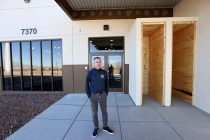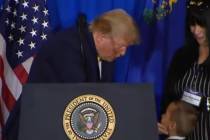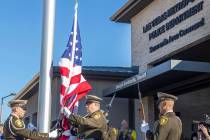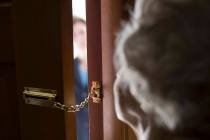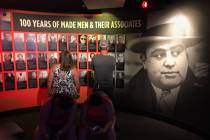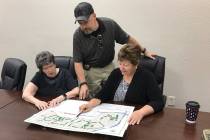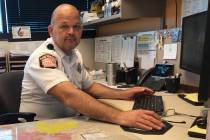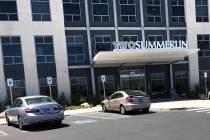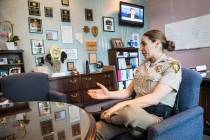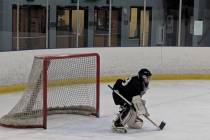Keeping soccer stadium proposal in play has strings attached
Ward 4 Councilman and mayor pro tem Stavros Anthony insists that public funds generally should not be used to accommodate private interests. For that reason he cast the only opposing vote on Oct. 1 in the City Council’s non-binding decision to proceed with a proposal to build a soccer stadium on the city’s Symphony Park property, across from The Smith Center.
In fairness to the other members of the City Council, there were strings attached to their 6-1 vote to keep the stadium issue alive. Realistically, however, those strings are more like a heavy-duty rope. That’s because there’s a caveat on the table that specifies that the council’s vote was contingent on there being no public funding involved in constructing the stadium.
Anthony, whose constituency is principally within Summerlin, would not waver on his vote until the advocates of bringing big league soccer to Las Vegas come before the City Council with a firm plan “to do the deal without one penny of public funding being spent on constructing the stadium.”
The advocates consist of a partnership of The Cordish Cos. and Findlay Sports & Entertainment. And after a briefing on ongoing discussions at the council’s Nov. 5 meeting, however the issue will be decided is scheduled for a final vote at the council’s Dec. 17 meeting.
“It comes down to one simple fact,” said an adamant Anthony. “As things now stand, the developer wants to use taxpayer dollars, paid by the 600,000 people of Las Vegas, to build a stadium that is not for public use. I have heard from my constituents that they want that money used for other purposes, for more pressing city needs.”
At its Oct. 1 session, the council was prepared to vote down the stadium proposal, with at least three other dissenters joining Anthony. They would have included council members Bob Beers, Bob Coffin and Lois Tarkanian. That’s because the group seeking the stadium was proposing an arrangement that would have amounted to a city expenditure of $90 million over 30 years. It would have required an additional $21 million in public funding from a tourism sales tax district and another $14 million for infrastructure needs.
The council approved the matter temporarily, but only on the basis of a motion from Councilman Ricki Y. Barlow that the proponents return with a plan that would eliminate public funding.
Anthony said that using sales tax money toward a private enterprise stadium would be “absolutely wrong,” adding, “That money we have been asked to divest for a stadium is intended to be used for public parks, in a recreational sense, and is not supposed to be used for private development.
“I’m not opposed to having a major soccer team in Las Vegas. I just don’t want any tax money to go into construction of the stadium,” Anthony insisted.
He said he had no problem with public expenditures for infrastructure needs, such as land costs, lighting and roads, “but not for the actual stadium.”
Without referring to proposals before the city to replace antiquated stadiums for existing sports entities, Anthony questioned how successful a professional soccer team would be in Las Vegas.
“I never saw an official study that shows a soccer team would go over well on a continuous basis in Las Vegas,” he said. “The proponents have talked about other cities with professional soccer teams. That may be, but we haven’t seen anything definitive that says soccer would be successful in Las Vegas.”
Proposals to build stadiums that would replace antiquated football and baseball facilities in Las Vegas have been collecting dust.
Sam Boyd Stadium, called Las Vegas Stadium when it was opened in 1971, is the home of UNLV football, high school football championships and the 23-year-old bowl game now known as the Royal Purple Las Vegas Bowl. The popularity of the game has produced attendances in excess of 40,000 in recent years.
Cashman Field, built by the city in 1982, has accommodated Pacific Coast League baseball ever since. It’s the home of the Las Vegas 51s and has averaged an annual attendance in excess of 300,000 since day one. It is also the second-oldest stadium in the 16-team PCL and the oldest in terms of facility obsolescence.
Herb Jaffe was an op-ed columnist and investigative reporter for most of his 39 years at the Star-Ledger of Newark, N.J. His most recent novel, “Double Play,” is now available. Contact him at hjaffe@cox.net.








